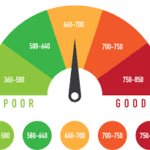Last Updated on July 1, 2024 by admin
Are you trying to make a big purchase. Or maybe you’re a first-time card user looking to build your credit from scratch. Or you are searching for credit card that offer cash back and many other perks such as discounts, travel points capital one credit card often come to mind because it grant a separate cash line of credit (LOC) to cardholders, enabling them to borrow money in the form of cash advances that can be accessed through bank tellers.
This is most popular payment methodologies for buying consumer goods and services, but there are few things you need to consider before you apply for one.In thi post we are going to discuss on how to apply for capital one cards,What to Do Before Applying for a Credit Card,Type of Credit Card You Need and Requirements to Apply for a Credit Card.
What is a credit card?
A credit card is a payment card issued to a cardholder whose aim is to enable the bearer to pay a merchant for settlement of goods and services, the bearer is expected to pay back the said amount funded on a later schedule date alongside other accrued charges subject to the terms of usage.
Credit cards give you access to a line of credit issued by a bank and it offers better consumer protections against fraud compared with debit cards linked to a bank account.Credit card users can reap cash, discounts, travel points, and many other perks unavailable to debit cardholders by using rewards cards.
Also read: Chase Credit Card: How to apply and get approval fast
What is a credit score
A credit score is a three-digit number, typically between 300 and 850, that represents your creditworthiness or how likely you are to repay borrowed money responsibly. It’s calculated based on your credit history, which includes information like:
- Payment history: Whether you pay your bills on time.
- Amounts owed: How much debt you have outstanding.
- Length of credit history: How long you’ve been using credit.
- Credit mix: The types of credit accounts you have (e.g., credit cards, loans).
- New credit: How often you apply for new credit.
Why is your credit score important?
Your credit score plays a crucial role in your financial life. Lenders use it to assess your risk as a borrower and determine:
-
Your credit score is important because it serves as a numerical representation of your financial trustworthiness. It impacts various aspects of your life, including:
-
Loan and Credit Card Approvals: A higher credit score increases the likelihood of your loan or credit card applications being approved. Lenders use your credit score to assess your risk as a borrower. A good score indicates you’re responsible with credit and more likely to repay the debt on time.
-
Interest Rates: Your credit score significantly influences the interest rates you’ll be offered on loans and credit cards. A higher score qualifies you for lower interest rates, which translates to significant savings over the loan term.
-
Credit Limits: A good credit score can lead to higher credit limits on your credit cards, giving you more financial flexibility.
-
Insurance Premiums: In many regions, insurance companies use credit-based insurance scores to determine premiums. A higher credit score often leads to lower insurance premiums.
-
Renting an Apartment: Landlords often check credit scores before approving rental applications. A good score can increase your chances of securing your desired apartment.
-
Job Opportunities: Some employers, particularly those in the financial industry, may check credit reports as part of the hiring process. While they can’t see your score, a negative credit history could raise concerns about your reliability and trustworthiness.
-
Negotiating Power: A good credit score gives you leverage when negotiating interest rates or terms with lenders.
-
Financial Well-being: A good credit score reflects your financial health and responsibility. It can open doors to better financial opportunities and provide peace of mind knowing you have a strong financial foundation.
-
How can you check your credit score?
A credit score is a numerical expression of your credit worthiness.it’s between 300–850.The higher the score, the better a borrower looks to potential lenders…This significantly affects your financial life. It plays a key role in a lender’s decision to offer you credit.
A credit score is a number that rates your credit risk. It can help creditors determine whether to give you credit, decide the terms they offer, or the interest rate you pay. Having a high score can benefit you in many ways. It can make it easier for you to get a loan, rent an apartment, or lower your insurance rate.
Credit score has three major credit reporting agencies in the United States (Experian, Equifax, and Transunion), which report, update, and store consumers’ credit histories
. Excellent: 800 to 850
. Very Good: 740 to 799
. Good: 670 to 739
. Fair: 580 to 669
. Poor: 300 to 579
Credit companies calculate your credit score using information from your credit report. The information that affects your score includes:
- Payment history
- Outstanding balances
- Length of credit history
- Applications for new credit accounts
- Types of credit accounts (mortgages, car loans, credit cards)
How can you improve your credit score?
There are several steps you can take to improve your credit score:
- Pay your bills on time: This is the most important factor.
- Reduce your debt: Aim to keep your credit utilization ratio (the amount of credit you use compared to your total available credit) low.
- Don’t close old credit accounts: The length of your credit history is important.
- Limit new credit applications: Too many hard inquiries can hurt your score.
- Monitor your credit report: Dispute any errors you find.
You can also read: How to Enroll for Capital One mobile app and Online banking and setup AutoPay
Requirements to applying for capital One Credit Card
Capital One offers various credit cards with different eligibility requirements. However, there are some general requirements that apply to most of their cards:
Basic Requirements:
- Age: You must be at least 18 years old to apply for a Capital One credit card. If you are under 21, you may need to provide proof of independent income or have a co-signer who is over 21.
- Social Security Number (SSN) or Individual Taxpayer Identification Number (ITIN): You’ll need to provide either an SSN or ITIN to verify your identity.
- U.S. Residence: You must have a valid U.S. residential address.
- Income: Capital One will ask for your estimated gross annual income, which can include personal income (wages, self-employment, etc.) and shared income (money regularly deposited into your account by someone else).
Additional Requirements:
- Credit History: Capital One considers your credit history when evaluating your application. While they offer cards for different credit levels, having a good credit history increases your chances of approval and may qualify you for cards with better rewards and benefits.
- Credit Score: While Capital One doesn’t specify minimum credit score requirements for each card, a higher credit score generally improves your approval odds.
- Debt-to-Income Ratio (DTI): Your DTI ratio, which compares your monthly debt payments to your gross monthly income, is another factor they consider. A lower DTI ratio indicates you’re less likely to default on your payments.
How to Apply:
- Check for Pre-Approval: You can see if you’re pre-approved for a Capital One credit card without impacting your credit score. This gives you an idea of the cards you’re likely to qualify for.
- Gather Your Information: Have your personal information (name, address, SSN/ITIN, date of birth), income details, and employment information ready.
- Apply Online or by Phone: You can apply for a Capital One credit card online through their website or by calling their customer service line.
Tips for Improving Your Chances of Approval:
- Check your credit report and score: Ensure your credit report is accurate and address any errors before applying.
- Pay down existing debt: Lowering your DTI ratio can make you a more attractive borrower.
- Choose the right card: Consider your credit profile and financial needs when selecting a Capital One card.
What Type of capital one Credit Card do You Need
Capital One offers a variety of credit cards to suit different needs and credit profiles. To determine which type of Capital One credit card would be best for you, consider the following:
- Your Credit Score:
- Excellent Credit (720+): You’ll likely qualify for premium rewards cards like the Capital One Venture X Rewards Credit Card or the Capital One Savor Rewards Credit Card, which offer high cashback rates or travel rewards.
- Good Credit (670-719): You can explore cards like the Capital One Quicksilver Cash Rewards Credit Card or the Capital One Venture Rewards Credit Card, which offer competitive rewards and benefits.
- Fair/Average Credit (630-669): Consider the Capital One Platinum Credit Card, which has no annual fee and can help you build credit.
- Limited/Bad Credit (300-629): You might be eligible for the Capital One Platinum Secured Credit Card, which requires a security deposit but can help you establish credit.
- Your Spending Habits:
- Cashback: If you prefer simple rewards, look for cards that offer a flat cashback rate on all purchases, like the Capital One Quicksilver Cash Rewards Credit Card.
- Travel: If you travel frequently, consider cards that offer travel rewards like airline miles or hotel points, such as the Capital One Venture Rewards Credit Card or the Capital One Venture X Rewards Credit Card.
- Dining and Entertainment: Some Capital One cards offer bonus rewards for dining and entertainment purchases, ideal for foodies and frequent restaurant-goers.
- Additional Features:
- 0% APR: Look for cards with an introductory 0% APR period on purchases or balance transfers if you need to finance a large purchase or consolidate debt.
- No annual fee: Many Capital One cards have no annual fee, which can save you money over time.
- Other benefits: Some cards offer perks like airport lounge access, travel insurance, extended warranties, and purchase protection.
To choose the best Capital One credit card for you, it’s essential to compare the different options and consider your individual needs and financial goals. Visit the Capital One website or use a credit card comparison tool to explore their available cards and features.
Where to apply for Capital one credit card
In the United States, you can apply for a Capital One credit card through the following channels:
-
Online: The most convenient way to apply is through the Capital One website. You can browse their different credit card options, check for pre-approval, and complete the application online.
-
By Phone: You can call Capital One’s customer service number to apply over the phone with the help of a representative.
-
Capital One Branch or Café: Capital One has physical branches and cafés across the United States where you can apply in person. You can use the Capital One Location Finder tool on their website to find the nearest branch or café.
-
Capital One Partner Retailers: Some retailers in the United States partner with Capital One to offer instant credit card applications at the point of sale. However, this option may not be available for all Capital One cards.
8 Types of capital one Credit Cards to Apply For
Capital One offers a wide variety of credit cards, each with its own unique benefits and perks. Here are 8 types of Capital One credit cards you can consider applying for:
- Capital One Venture X Rewards Credit Card:
This premium travel card offers a generous welcome bonus, high earning rates on travel and dining, and a $300 annual travel credit. It also includes access to Capital One lounges and other travel benefits.
- Capital One Venture Rewards Credit Card:
A popular choice for frequent travelers, this card offers a valuable welcome bonus, unlimited miles earning, and no foreign transaction fees. You can also redeem miles for travel through the Capital One Travel portal or transfer them to airline and hotel partners.
- Capital One Quicksilver Cash Rewards Credit Card:
This card offers a simple and straightforward cashback rewards program, with a flat 1.5% cashback on all purchases. It also comes with an introductory 0% APR period and no annual fee.
- Capital One Savor Rewards Credit Card:
A great option for foodies and entertainment enthusiasts, this card offers bonus rewards on dining, entertainment, and streaming services. It also provides access to exclusive culinary experiences and events.
- Capital One Platinum Credit Card:
Designed for individuals with fair or average credit, this card has no annual fee and offers a rewards program for responsible cardholders. It also provides access to CreditWise, Capital One’s free credit monitoring tool.
- Capital One Platinum Secured Credit Card:
This secured credit card requires a refundable security deposit, making it a good option for those looking to build or rebuild their credit history. It reports to all three major credit bureaus, helping you establish a positive credit record.
- Capital One Spark Cash Plus:
Tailored for small business owners, this card offers an unlimited 2% cash back on all purchases and a generous welcome bonus. It also includes additional perks like employee cards and expense management tools.
- Capital One Spark Miles:
Another option for small business owners, this card earns unlimited miles on every purchase, with bonus miles on hotels and rental cars booked through Capital One Travel. It also offers no foreign transaction fees, making it ideal for businesses with international expenses.
FAQS
Q1: How do I apply for a Capital One credit card in the United States?
A1: You can apply for a Capital One credit card in the United States through several channels:
- Online: Visit the Capital One website and browse their credit card options. You can check for pre-approval and complete the application online.
- By Phone: Call Capital One’s customer service number and apply with the help of a representative.
- Capital One Branch or Café: Visit a Capital One branch or café in person to apply. You can find the nearest location using their Location Finder tool on their website.
- Partner Retailers: Some retailers offer instant credit card applications at the point of sale.
Q2: What are the general requirements to apply for a Capital One credit card?
A2: The general requirements include:
- Being at least 18 years old
- Having a valid Social Security Number (SSN) or Individual Taxpayer Identification Number (ITIN)
- Having a U.S. residential address
- Providing information about your income and employment
Q3: Do I need a good credit score to apply for a Capital One credit card?
A3: Capital One offers credit cards for various credit levels. While a good credit score increases your chances of approval and may qualify you for cards with better rewards, they also have options for fair or average credit.
Q4: What information do I need to provide when applying?
A4: You’ll need to provide:
- Personal information (name, address, SSN/ITIN, date of birth)
- Income and employment details
- Information about your existing debts (if any)
Q5: How long does it take to get approved for a Capital One credit card?
A5: The approval process typically takes a few minutes to a few days. If approved, you’ll receive your card within 7-10 business days.
Q6: Can I check if I’m pre-approved for a Capital One credit card?
A6: Yes, you can check for pre-approval on the Capital One website without impacting your credit score. This gives you an idea of the cards you’re likely to qualify for.
Q7: What should I do if my application is denied?
A7: If your application is denied, Capital One will provide you with a reason for the denial. You can then take steps to improve your credit score and reapply later.














